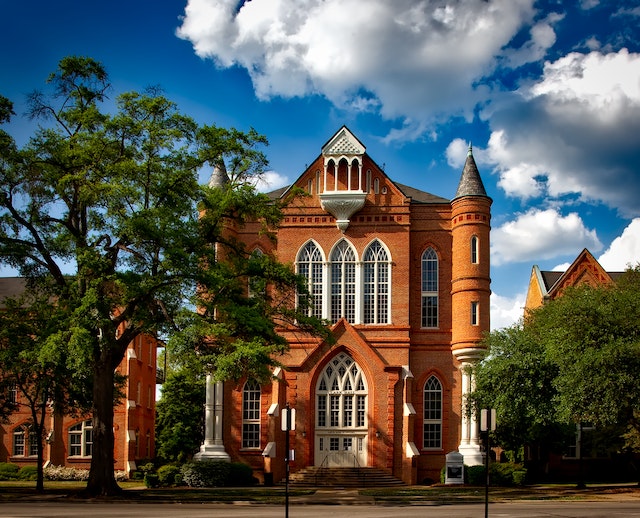The Ivy League, which comprises eight prestigious private universities in the Northeastern US, is widely known for its academic excellence, athletic success, and cultural significance. While many other universities across the US also have a reputation for academic rigor and excellence, questions have arisen regarding whether they could be considered part of the Ivy League. One such university is the University of North Carolina at Chapel Hill, a public research university located in North Carolina. This article aims to examine whether UNC is an Ivy League school and the various factors that determine membership in this exclusive group of institutions.

Is UNC An Ivy League School?
UNC is not an Ivy League school. UNC is a highly regarded public research university located in North Carolina and part of the University of North Carolina system, known for its academic rigor and excellence across a range of fields, as well as its selective admissions process that attracts top students from around the world. While not part of the Ivy League, which is limited to eight elite private universities in the Northeastern US, UNC has a long and impressive history dating back to 1789 and a large and diverse student body of over 30,000 undergraduate and graduate students each year.
Why is UNC Not an Ivy League School?
- Public Institution: One of the primary reasons UNC is not part of the Ivy League is that it is a public university. The Ivy League schools are all private institutions with a significant endowment, which allows them to offer more resources and opportunities to their students.
- Athletic Conference: The Ivy League has a unique athletic conference, in which UNC does not participate in. The Ivy League is known for its highly competitive athletic programs, and their athletic conferences have a significant impact on student life at these universities.
- Historical Context: Finally, the term “Ivy League” was not used to describe these eight universities until the mid-20th century, and it was primarily used for their athletic programs. The Ivy League schools have a long and impressive history of academic achievement and are known for their high academic standards. However, their athletic programs were the main focus when the term was first coined.
Why is UNC Compared to Ivy League Colleges?
UNC-Chapel Hill is often compared to Ivy League colleges, despite not being part of the Ivy League. There are several reasons why UNC is considered to be on par with Ivy League institutions.
Firstly, UNC has a reputation for academic excellence and selective admissions, which are hallmarks of Ivy League colleges. UNC is consistently ranked among the top public universities in the US and has a highly competitive admissions process, with an acceptance rate of around 22%.
Secondly, UNC has a rich history and tradition, similar to many Ivy League schools. Founded in 1789, UNC is one of the oldest public universities in the US and has a long-standing commitment to academic excellence, public service, and research.
Thirdly, UNC has a strong commitment to diversity and inclusion, which is also a hallmark of many Ivy League schools. UNC has a diverse student body, with students from all 100 counties in North Carolina and from around the world. UNC also has a strong commitment to social justice and equity, with many programs and initiatives aimed at promoting diversity and inclusion on campus.
Differences Between Ivy League Schools and Normal Schools
The difference between Ivy League schools and normal schools is significant in several ways. Firstly, Ivy League schools are prestigious private universities with a long-standing reputation for academic excellence and high selectivity in their admissions process. In contrast, normal schools are usually state-funded institutions with less selective admissions and lower tuition fees.
Secondly, Ivy League schools tend to have more resources and opportunities available to their students, including larger endowments, more research funding, and more extensive alumni networks. Normal schools may offer fewer resources, but they often have a more diverse student body and a wider range of academic programs.
Finally, the academic standards at Ivy League schools are often higher than at normal schools, with a greater emphasis on research and scholarship. Ivy League schools also tend to have a more competitive and rigorous academic environment, which can be challenging for some students.
In conclusion
The term “Ivy League” refers to a group of eight prestigious private universities in the Northeastern US that are known for their academic excellence, wealth, and privilege. While UNC Chapel Hill is a highly respected public university, it is not part of the Ivy League. The differences between Ivy League schools and normal schools are significant, with Ivy League schools often offering more resources, opportunities, and a more competitive academic environment. However, both types of schools have their strengths and weaknesses, and the most important factor in choosing a school is finding the right fit for the individual student. Ultimately, the pursuit of higher education is a personal journey, and students should choose a school that aligns with their goals, values, and interests.
FAQs:
- How do I decide whether to attend an Ivy League school or a normal school?
Ans. The decision of whether to attend an Ivy League school or a normal school depends on several factors, including academic goals, personal preferences, and financial considerations. It is important to research and visit different schools, talk to current students and alumni, and weigh the pros and cons before making a decision.

